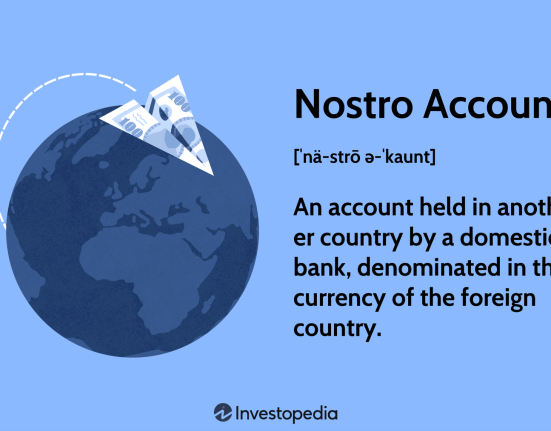What Is an Underwriter?
Underwriters are crucial players in the financial sector, evaluating and assuming risk for various transactions including mortgages, insurance policies, loans, and investments. Typically affiliated with financial institutions, they charge fees like commissions or premiums for this service.
Their main responsibility is to assess risks—whether it’s a borrower’s ability to repay a loan or the insurability of a client. In every case, underwriters help ensure that financial transactions proceed smoothly by balancing the likelihood of a successful outcome against potential defaults or claims.
Key Takeaways
- Underwriters play a crucial role in the finance industry by assessing and assuming risk, which includes evaluating risks in mortgages, insurance, loans, and investments for a commission or fee.
- In the mortgage industry, underwriters determine whether loan applicants meet necessary criteria and ensure the property’s value justifies the loan amount before approving or denying funding.
- Insurance underwriters use risk analysis to decide if coverage should be granted, focusing on a policyholder’s risk factors to accept or reject their application.
- Equity underwriters are essential in the IPO process, setting initial offering prices by gauging investor interest and ensuring regulatory compliance for public stock issuance.
- Debt security underwriters buy debt securities to sell for a profit, forming syndicates when multiple underwriters are necessary to manage and distribute risk efficiently.
The Role and Responsibilities of Underwriters
Underwriters are crucial in finance, working in areas like mortgages, insurance, equity markets, and certain debt securities. A lead underwriter is often called a book runner.
Modern-day underwriters play a variety of roles, depending on the industry in which they work. In general, underwriters are tasked with determining the level of risk involved in a transaction or other kind of business decision. Risk is the chance that an investment’s actual gains will vary from the expected gains.
Investors rely on underwriters because they determine if a business risk is worth taking. Underwriters also handle sales activities. In an initial public offering (IPO), they may buy the entire IPO issue and resell it to investors. An IPO is a process through which a previously privately owned company sells its shares on a public stock exchange for the first time.
The Origins and Evolution of Underwriting
The term “underwriter” began in early marine insurance when shipowners sought coverage for ships and cargo to guard against losses. Shipowners created documents detailing the ship, its contents, crew, and destination.
The document outlined rates and terms. Businesspeople would sign to indicate how much risk they would take. These businesspeople became known as underwriters.
Different Types of Underwriters Explained
Understanding Mortgage Underwriters
The most common type of underwriter is a mortgage loan underwriter. Mortgage loans are approved based on a combination of an applicant’s income, credit history, debt ratios, and overall savings.
Mortgage loan underwriters ensure that a loan applicant meets all of these requirements, and they subsequently approve or deny a loan. Underwriters also review a property’s appraisal to ensure that it is accurate and that the home is worth the purchase price and loan amount.
Mortgage loan underwriters have final approval for all mortgage loans. Loans that aren’t approved can go through an appeal process, but the decision requires overwhelming evidence to be overturned.
Fast Fact
According to the U.S. Bureau of Labor Statistics, employment of insurance underwriters is projected to decline 4% from 2021 to 2031.
An In-Depth Look at Insurance Underwriters
Insurance underwriters, like mortgage underwriters, review applications for coverage and accept or reject an applicant based on risk analysis. Insurance brokers and other entities submit insurance applications on behalf of clients, and insurance underwriters review the application and decide whether to offer insurance coverage.
Insurance underwriters advise on risk management issues, determine available coverage for specific individuals, and review existing clients for continued coverage analysis.
Exploring Equity Underwriters and Their Role in IPOs
Underwriters administer the public issuance and distribution of securities—in the form of common or preferred stock—from a corporation or other issuing body in the equity markets. An equity underwriter’s key role is in the IPO process.
IPO underwriters are financial specialists who work closely with the issuing body to determine the initial offering price of the securities, buy the securities from the issuer, and sell the securities to investors via the underwriter’s distribution network.
Investment banks, with IPO specialists on staff, usually serve as IPO underwriters, ensuring all regulatory requirements are met.
To gauge interest in the investment, the IPO specialists contact a large network of investment organizations—such as mutual funds and insurance companies. The amount of interest received by these large institutional investors helps an underwriter set the IPO price of the company’s stock.
Fast Fact
Underwriters guarantee the sale of a set number of shares at the initial price, buying any surplus.
How Debt Security Underwriters Operate
Underwriters buy debt securities like government, corporate, and municipal bonds or preferred stock from issuers to resell them for profit. This profit is known as the underwriting spread.
An underwriter may resell debt securities directly to the marketplace or to dealers (who will then sell them to other buyers). When the issuance of debt security requires more than one underwriter, the resulting group of underwriters is known as an underwriter syndicate.
The Importance of Underwriters in Financial Markets
Investors need underwriters to determine if a business risk is worth investing in. In addition, underwriters also contribute to the success of sales activities.
What Are Some Common Types of Underwriters?
A mortgage loan underwriter is one of the most common types of underwriters. Their job is to ensure that a loan applicant meets all requirements before approving or denying the loan. Another common type is insurance underwriters, who review applications for coverage and, based on their findings, accept or reject an applicant. Underwriters who work in the equity market must administer the public issuance and distribution of securities from a corporation or other entity in the form of common or preferred stock.
What Is a Book Runner?
A book runner is a primary underwriter or lead coordinator in issuing new equity, debt, or securities instruments. These types of underwriters also may coordinate with others to mitigate their own risk, for example, those representing companies in large, leveraged buyouts (LBOs). Because they combine the duties of an underwriter while coordinating the efforts of multiple involved parties and information sources, book runners become the central point for all information regarding the potential offering or issue.
The Bottom Line
An underwriter is any party, usually part of a larger financial organization, that evaluates and assumes, for a fee, another party’s risk in mortgages, insurance, loans, or investments. Underwriters work in many areas of finance, from the insurance industry to mortgage lending. They are critical to the mortgage industry, insurance industry, equity markets, and common types of debt securities trading because of their ability to ascertain risk.







